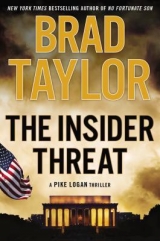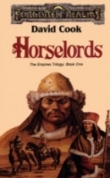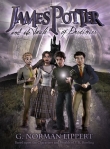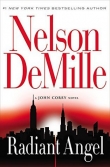
Текст книги "The Insider Threat"
Автор книги: Brad Taylor
Жанр:
Боевики
сообщить о нарушении
Текущая страница: 8 (всего у книги 30 страниц)
25
Hussein bounded up the steps to his apartment, running through all of the things he needed to do before his first day of work tomorrow. He wanted to make a good first impression, showing the hotel he was his father’s son. Forgetting, for the moment, the reason he’d really come.
He opened the door to his small two-room apartment, and that purpose came crashing back, slamming into his conscious brain like a wave tossing him onto the rocks.
Ringo was sitting at his makeshift kitchen table, typing on a laptop.
Hussein kicked the door closed, then stood silently.
Ringo said, “Lost Boy. You’re home. And I see you have a uniform. So we are ready. Good little man.”
Hussein said, “How did you get in here?”
Ringo’s condescending grin leaked out, and he said, “Did you think Omar would let you loose on your own? I’m on the lease documents. I only had to pick up a key.”
Dumbly, Hussein remained at the door. Ringo said, “Come inside. Cook me some food. I saw you’ve been shopping, and I’m hungry. It was a long trip.”
Hussein thought about his past, then his future. He remembered his father’s touch, and realized he could get out right now. Kill Ringo and flee.
Ringo saw the slice of emotion on his face and stood up, pulling out a thick knife with a blackened blade. Menacing.
He said, “I’m staying here, with you, Lost Boy. Unless you have a problem with that.”
Hussein said, “No, no. Of course not. Where are the others? The team? I don’t have room for them all.”
“Don’t worry about them. They’re here, and they’re ready. We’re all waiting on you. Did you meet your father? Get the key?”
Hussein circled around him, entering the small kitchen area. He said, “Yes. Yes, I did. But I don’t start work until tomorrow.”
“That’s no problem. We aren’t attacking for forty-eight hours. You’ll have a full day of work to figure things out. Just don’t give any indication of what’s going to happen.”
Now within view of the laptop’s computer screen, Hussein saw Ringo was on Twitter, going back and forth with direct messaging. The sight provided something to knock Ringo back and gain the initiative.
He said, “Why are you on Twitter? Why are you still using social media after we were told not to?”
Ringo abruptly sat down, putting the knife on the table and closing the web browser, his fear of disobeying the Chechen clearly evident. He said, “I’m not. All I did was check my Twitter feed.”
“No, that’s not all you did. I saw the feed. I saw the direct message app. Who were you talking to?”
“None of your damn business. I’m in charge here.” He picked up the knife, tapped the table with the blade, then used it to point at Hussein. He said, “You need to remember that.”
Hussein leaned into a doorjamb and crossed his arms. “I understand my place. I don’t understand what the Islamic State is planning. What is it?”
“You don’t need to know. You open the door, and we’ll do the rest.”
“I want to know. My father told me what happened at this hotel in 2005. Are you going to repeat that?”
Ringo scoffed and said, “Hell no. I’m no shahid. My life is worth much, much more.”
Hussein took that in, wondering what else it could be. He said, “I need to understand so I can help. I’m working in a vacuum.”
Ringo said, “The plan is mine. You just provide the entrance. Can you do that?”
“Yes. I can now. My father gave me a job.”
“Dumbass. Hope he stays away from work in two days.”
The words reminded Hussein of the threat that would affect someone other than himself. A thought that gave him an unfamiliar sense of apprehension.
He said, “Ringo, you can’t kill my father. He’s the concierge. Make sure the men know. There will be plenty of other people to make a statement. My father is just a worker. Understand?”
Ringo said, “Don’t tell me who I can and can’t martyr. The mission is all that matters here, and we’ll be moving fast. He gets in the way, he’s dead.”
Hussein shuffled his feet, wanting to push the issue but afraid of the repercussions. Ringo saw the doubt and realized Hussein could cause the failure of the entire undertaking. He said, “Look, okay, I’ll tell the team to leave him alone.”
Hussein smiled with relief and Ringo said, “What can they use to identify him?”
“He’s the concierge. He’ll have two badges of crossed keys on each lapel. Big gold things. You can’t miss them.”
Ringo slowly nodded, then said, “All right, Lost Boy, we’ll keep your father out of this, but if you fail to deliver, if we can’t get in, I’ll personally hunt him down and kill him. Do you understand?”
Hussein rapidly jerked his head up and down.
Ringo said, “Where’s the door? How do we get in?”
“I work at Thirty-Two North, a fancy restaurant on the lobby level. It has a kitchen in the back that also facilitates two other restaurants. One of my duties is taking out the trash. There’s a loading dock there with the Dumpsters. It’s in the back of the hotel, in between it and the convention center. Away from all security.”
“No metal detectors or guards?”
“No. You get in and you’ll be facing some secondary cooks, maybe a waiter or two, but no security. There’s a camera, but I’m assuming you don’t care about that.”
“No, I don’t. And the waiters or cooks can be the first to die. So you have a key to this door? You can get in?”
“Not yet. The door has an electronic entry. They say I’ll have a badge by tomorrow, my first day.”
“You can bring that to me.”
“No. I can’t. I need it to get into work.”
Ringo ignored that and said, “Can we park next to the door and get in?”
Hussein thought, then said, “I don’t believe so. They have barriers to prevent someone from parking a car bomb. You’ll have to stop outside of the perimeter and walk up. The only way to drive is to go through security. Is that a problem?” He hoped it was. Prayed it would prevent the attack. He’d done what he could, and if the kitchen door wouldn’t work, it wasn’t his fault.
Ringo said, “I won’t know without seeing it. Take me there. Can we walk from here?”
Hussein nodded, saying, “Unless you brought one of your trucks, I walk everywhere I go.”
26
I slammed my car into drive and entered the nuthouse known as Amman traffic, heading east to the Citadel and yelling into my earpiece.
“Knuckles, status?”
“Still staged to pick up Koko. Dropped her off and found a place to spell.”
“So no visual on the target?”
“Nope. I’m a block away.”
I tried Brett, using his callsign on the radio. “Blood, you have visual of Hipster?”
“Negative, negative. I was waiting on Koko’s trigger to go in. I never saw him. You want me to go in now?”
Shit.
“No, no, we’re in no rush. We’ll just repeat tomorrow, and I don’t want to burn you. Break, break, Koko, how sure are you it’s Shoshana?”
“Positive. I mean one hundred percent.”
“What the hell is she doing here?”
It was a rhetorical question, and Jennifer knew it, not even bothering to respond. Shoshana. Just what I fucking need.
She was an Israeli assassin who worked for Mossad. She belonged to a hit team called Samson that had grown out of the fabled Wrath of God missions against Black September during the 1970s. She was very, very good at her job, and if she was there, somebody was going to die. There was no way it was a coincidence. If she was sitting in the exact same coffee shop we’d chosen, she’d picked it for same reasons we had. She was looking at the same building we were. I just prayed she wasn’t looking at the same target.
Shoshana and I had originally bumped heads on another mission in Istanbul, crossing paths much like this one, only I hadn’t known her then and had come close to killing her, believing she was the enemy. I’m glad I didn’t, because she ended up saving a lot of lives.
I cleared the road around the Citadel and said, “All elements, all elements, listen up. Box the apartment. Put a net on it and let me know if the target leaves. Keep an eye out for the rest of the Samson team. I know they’re here, and odds are they’ve already seen you.”
I got a roger from all elements but Jennifer. She said, “You want me to disengage or keep eyes on Shoshana?”
“Keep eyes on. I’m three minutes out.”
“What are you going to do?”
“I’m going to brace her ass.”
Knuckles said, “I want to be there. This is going to be fun.”
I didn’t reply, but I had to admit, he was right. This mission had just gotten interesting, and I couldn’t help but feel a little adrenaline rush at the fact Shoshana was here. I genuinely liked her, and was looking forward to burning her little operation. If I had half a brain, I’d be afraid of what she’d do, because she was positively lethal. But I had an ace up my sleeve: She was sweet on me.
I jammed my Land Rover up onto a curb in a small alley and jumped out, pretty sure that there wouldn’t be any tow trucks coming. I jogged toward the coffee shop, saying, “I’m thirty seconds out. Jennifer, location?”
“At the corner on the hill. The one to the south.”
I knew where she meant. It was the same corner we’d used on our reconnaissance earlier. I held up short in an alley full of trash and running, slimy water. “I’m here.”
“Where?”
“About to pop out. Alley to your west.”
I kept walking and saw Jennifer turn the corner. She jogged up to me and said, “It’s her, Pike. I’m sure. Maybe we should let her leave instead of interfering with whatever operation she’s doing.”
Meaning, she might go nuts. I didn’t think she would, but with Shoshana, you never knew. She was impossible to predict, working on a gut instinct that sometimes bordered on clairvoyance. Actually, I hadn’t told anyone, because it sounded nuts, but I believed she was clairvoyant. There had been times in the past when she seemed to be able to read my thoughts, scaring me.
I grabbed Jennifer’s hand, dragging her with me, saying, “She just busted up our operation. Turnabout’s fair play.”
“What if she reacts?”
We reached the road for the apartment complex and the coffee shop, and I saw Shoshana, sitting by herself on the outside patio. She was dressed like a local, wearing a hijab and drinking tea, but it was her. I’d done enough operations side by side with her that I could sniff her out even if she was wearing a Darth Vader costume. I have to admit, seeing her brought a little nostalgia.
I said, “Come on. She won’t go nuts. She’s smitten with me. You jealous?”
Jennifer jerked her hand out of mine and said, “Have you lost your mind? She’s a cold-blooded killer. And she’s a lesbian. You know that.”
Which was true, but didn’t alter the facts. Our relationship was a little complicated, but it was a relationship. I said, “I know. But she’s still smitten with me. Or maybe it’s you.”
Jennifer glared at me. I started walking down the hill and she pulled my sleeve. She said, “I think you’re smitten with her, and it’s clouding your judgment.”
The comment took me aback. I stopped and turned to her. I knew she hadn’t said it out of jealousy. Jennifer was way beyond that. She instinctively knew that I’d follow her into hell just to smell the sulfur if she asked. Truth be told, we’d already been through the fire, and she understood me more than anyone else on Earth. More than myself at times. Like now. Maybe she had a point. Maybe I was forgetting Shoshana’s less-than-stellar edges.
I looked at her, seeing nothing but concern. I said, “Okay, I won’t do anything stupid. Let’s just see what she’s about.”
She squinted at me and I said, “I promise. No antics, but we can’t let her walk, and there’s no way we can follow her if she’s working with a Samson team.”
She shook her head to let me know she thought it was a mistake, but said, “Okay. Okay.”
I turned and strode down the hill, reaching the small rope that marked the deck of the outside patio. I stepped over it and got within ten feet of her table before Shoshana shifted, sensing my approach. She looked up and I saw her eyes widen. She showed no other outward sign, maintaining her nonchalant tea-drinking attitude.
I sat down at her table, then looked at Jennifer standing behind me. I said, “See. Told you.”
Shoshana shook her head, a bemused grin on her face. “Nephilim Logan. I suppose this is some prophecy coming to life.”
Shoshana had always had a strange attraction to my given name, thinking it meant something more than the hippie purpose my parents chose in giving it to me.
She said, “Should I draw my weapon?”
“Do you have one?”
She laughed and said, “No. Actually I don’t.”
“Where’s Aaron? The rest of your team?”
“Aaron’s around. In fact, he’s listening to you right now.”
She glanced to the ground, and I realized she had in an earpiece. She said, “No problems. Don’t break position.”
She paused, then said, “Yes, you heard right. Believe it or not, I’m sitting with Pike and Jennifer. I don’t know why. I’ll call in a second.”
She looked at Jennifer and said, “Might as well have a seat. As Pike would say, this has turned into a circus.”
Jennifer did so, and Shoshana said, “You’re looking good. I have to say I missed you.”
Only it wasn’t to me.
I said, “Don’t start that shit. You can’t push my buttons like that anymore. Not after Brazil.”
She laughed, a genuine thing, and said, “Okay, I missed you too.”
She picked up her small glass of tea. Saying nothing. Waiting on me.
I said, “What are you doing here? I mean, we’re here to look at some UNESCO heritage sites, check on their deterioration, that sort of thing. You know, for my company. We were walking around this little enclave, and holy shit, Jennifer saw you.”
She said, “You guys want something to drink?”
“No. I want to know what you’re doing in the same damn coffee shop I was going to plant Jennifer in.”
She looked at Jennifer and said, “So, this heritage site is probably inside that apartment building across the street.”
She is on our target set. But maybe the apartment complex was just a jihadist hotbed. It could still be coincidence.
I said, “Yeah, it is, and you’re becoming like Uncle Kracker at a Kenny Chesney concert.”
She scrunched up her eyebrows. “What does this mean?”
“It means people are paying to see me in concert and you keep popping up in the middle of it.”
Jennifer rolled her eyes, realizing my clever response was lost on an Israeli. She said, “It means we’re on a mission here as well, and we’re wondering if you’re chasing the same guy. Like last time.”
“So you are Uncle Kracker?”
I said, “No, damn it, I’m Kenny Chesney. . . . Never mind. What are you doing here? What is Mossad doing here?”
“I’m no longer in government service. Aaron retired, and we’re on our own.”
“It’s just you and him?”
“Yes.”
“So you’re a gun for hire now? Who are you working for?”
She said, “It’s complicated.”
Of course.
My earpiece came alive. “Pike, Pike, trigger. Target just left the apartment complex. He’s walking with an unknown.”
Shoshana’s eyes narrowed, but she couldn’t have heard the call. I followed her gaze. She was looking at Hussein and the unknown, walking up the street and retracing the route Hussein had taken earlier.
She was tracking our target.
Her eyes still on them, she stood, saying, “I have to go.”
I grabbed her wrist, drawing a flash of anger, a deep well that I had seen in action before. Jennifer clamped her hand on my arm and said, “Let it go, Pike.”
I looked into Shoshana’s eyes and saw she was begging me to not push the issue. Begging for me to back down. But I also saw she was willing to push it to the limit, and I’d seen what that entailed. I released her, saying, “You’ve only got two. We can help here. Let’s work together.”
She threw some money on the table and said, “Like old times?”
“Yes. But we get the target. He comes with us.”
She said, “He’s not going anywhere but into a pine box.”
At those words, I stood, saying, “I don’t know how you got on this target, or who’s pulling your strings, but I can’t let you kill an American. Friends or no friends.”
She whipped her head to me and said, “American? What are you talking about?”
27
Omar al-Khatami stared into the mirror, the steam from the hot water fogging the glass. A stranger stared back.
His hair now cut short into stubble, he’d finished the transformation by shaving his beard. The first time he’d done so in . . . in . . . he couldn’t even remember. The only thing that remained were the eyes. Something that could pose a problem. Even he saw it, staring into the hotel mirror. He’d never be mistaken as a church group leader, no matter what he did. His eyes had seen too much, and had filled up with the death, like a blood bucket in a slaughterhouse. The carnage of his past now leaked out no matter what he looked like.
He pulled a towel from the rack and blotted his face, putting the thought aside. It was something to worry about later. First, he had to get the instruments of destruction from Albania, and he wondered if he was walking into a trap.
The contact call had gone fine. He’d answered with the correct responses, even as he feared using the traitorous satellite phone. He’d been given a clean email address, and he’d demanded that the phone be used only for emergencies, and the man on the other end had agreed. There was nothing outward that gave Omar pause. The man hadn’t said anything wrong, but he’d sounded tinny, as if he were talking through a pipe. Or talking through some technology that was recording what Omar said.
Maybe I’m paranoid. But it wasn’t the first time, and wouldn’t be the last. Especially given the email.
Omar had received the message tonight on his new account. He’d been told it would simply be a test to ensure they could talk. He was just to reply, letting them know he’d gotten it, but the email had more than innocuous test words. It said the meeting in Albania had been bumped twenty-four hours. A change that raised the hair on his neck. The excuse given was some problem with the Albanians, which very well might be true, but the delay made him wary for reasons more than just his skin.
The mission had a myriad of different links, all which, if broken, would guarantee failure, but the biggest one was the elimination of the church group. It was the most important element, and he needed to be there for that. Needed to control the event and make sure the killing achieved its objectives. Death alone was nothing. They needed to assume the identities of the boys they killed, and he wasn’t sure the Lost Boys could do that on their own. He had no doubt they’d slaughter on command, but wasn’t convinced they had the vision to understand the delicate nature of the task.
He scrubbed his face with the towel and tossed it aside, thinking.
Jacob knows. Jacob can do it. But he has no real identity with the Islamic State. And the other Lost Boys are children looking for a home.
It was a problem he’d seen over and over while trying to build a true Islamic army. Foreign fighters flocked to the Islamic State, but most for the wrong reasons. They professed allegiance, but not for the true love of Islam. Instead of Islam drawing them in, it was their own sorry existence in whatever country they came from pushing them out, like a mother bird getting rid of a weakling. Unlike the true visionaries of Afghanistan, Chechnya, and Iraq, these men came without devotion to Islam. They came with a void to fill, and used Islam to satisfy the emptiness. They came to become something they were not.
It worked well on the battlegrounds of Iraq, where cannon fodder was needed, but was not something he trusted here, where the attack was built on the intelligence and commitment of the men. In this, he understood the slow fight of al Qaida. Understood the reasons of the Khorasan group, even as he fought them on the plains of Syria. He also recognized his own limitations.
Omar wasn’t the man for this mission. His skill was the seizure of terrain. The overt crushing of towns, cities, and provinces. He’d proven that first in Dagestan, then in Mosul. He wasn’t Mohamed Atta, and wished fervently for such an iron commitment from the Lost Boys. That man understood this type of mission. When Atta looked out of the window of American Airlines flight 11, seeing the New York skyline, he knew what it meant to be a martyr, unlike the foreign fighters Omar sent into battle.
Those men, like the Brit he’d sent to Jordan, were at most losers looking to kill just to prove their worth. Cutting off heads on camera as if that made him worthy. Omar had heard Jacob call him Ringo, and, while he should have put a stop to it, he’d actually thought it funny.
Jacob was a different animal. Omar wasn’t sure what drove him forward, but he was made of the same steel as Mohamed Atta. And he’d proved it on the border crossing into Turkey.
They’d driven through the desert only at night, the Lost Boys in the back and him at the wheel. During the day, they’d hidden in enclaves held by sympathizers of the Islamic State. Or at least people who were afraid of feeling the Islamic State’s wrath.
The black flags of the State were harder to find now because of the unrelenting air strikes, but at least he knew they wouldn’t kill a solitary vehicle. He kept going, feeling the press of time.
They reached the border of Turkey at a sympathetic crossing. One that had been reliably used as a veritable fountain of men flocked to their cause. There, Omar had learned that the state of play had shifted.
Before, Turkey had allowed anyone willing to fight the hated regime of Bashar al-Assad free passage, no matter their allegiance or group. Had allowed anyone who wanted to kill into the cauldron, but during the time Omar had been fighting in Iraq, something had changed. Now the passage was blocked.
He’d rolled into the checkpoint, moving slowly, seeing the barrels burning and the men standing around with AK-47s. One held out his hand. He stopped.
The man said, “Who are you and where are you going?”
As he had in the past, he held out the bribe and said, “Who I am is of no concern. I’m going where I’m going.” The man took the money, then looked in the back. Omar sensed something was amiss. He could see it in the attitude of the men manning the checkpoint.
The sentry, his face completely covered in a keffiyeh, had said, “Show me identification. Are you a Kurd? PKK?”
Omar had breathed a silent relief. They were more concerned with the Kurdistan Workers’ Party flowing through here fighting the Islamic State than any attempt at catching him. As strange as it was, they cared more about the slow insurgency in their own country than the raging bonfire just south of the border. Something he could use.
“No. I’m not PKK. Or YPG. Or anything Kurdish. I’m Chechen, and I’m just trying to get home.”
The man’s eyes had hardened, and the rifle brought to bear. “Chechen how? What have you been doing in Syria?”
Omar realized too late the man cared about more than just Turkish interests. The crusaders had managed to actually get something done. Had managed to make the Turks look for the danger in their midst. And now he was in trouble.
He looked at the men around the fire barrel, all alert and pointing weapons. Not yet hostile, but he could sense the potential violence from them.








